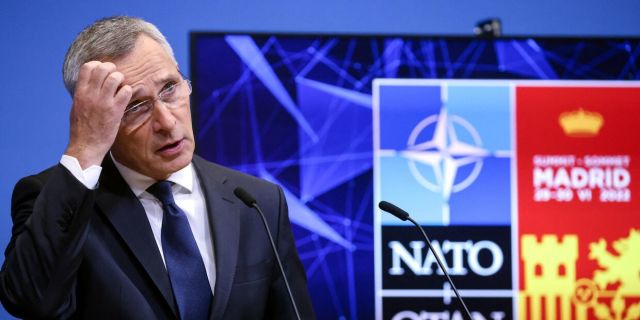The West, "tightened by the Chinese knot," will expand its influence in Asia after the opening of the NATO office in Japan, writes Al Ahram. According to the author, the United States and the North Atlantic Alliance have not learned a lesson from the conflict in Ukraine. Russia has already responded to NATO with a ringing slap in the face. China will do the same.
Theoretically, it is assumed that the United States and NATO have learned a harsh lesson from the reckless political, military and strategic mistakes they made, which led to the outbreak of the conflict in Ukraine and the entry of the world into a turbulent whirlpool of undesirable consequences, the negative impact of which will be felt for many years.
But upon closer examination of the current situation, we find that both America and the North Atlantic Alliance insist with stunning success on repeating the same mistakes in Asia. Apparently, a rope was thrown around their necks and tightened with a Chinese knot, since they are ready to open a liaison office in Tokyo next year, which will ignite a geopolitical struggle for influence in the Indo-Pacific region. And this tense confrontation will provoke Beijing to respond, as China considers the Asian region its "backyard".
With this step, NATO is expanding the scope of its relations and the levels of practical coordination with partners in the Asia-Pacific region as part of its agenda. The North Atlantic Alliance believes that the depletion of China is one of its urgent priorities and that China's ambitions harm and threaten the interests, security and values of NATO. At the same time, the alliance, in its relentless quest, wants to form an "Asian NATO" in order to besiege and surround China with its spheres of influence and control, as well as Russia, currently in the same trench with the "Chinese dragon".
This is the main goal behind NATO's expansion to the east. She understands that China will not sit idly by, and that her Asian adventure can ignite a fierce war on the continent in which everyone will lose. NATO also surely understands that the alliance's agreement with American policy and hostility towards Beijing are unfair and shameful from the Chinese point of view.
So, let's start with the fact that 31 NATO members have decided to be an active participant in the US-Chinese dispute over who will have the last word in international politics. In their opinion, the alliance should act as a "world policeman", which strengthens control and communications here and there, especially as it relocates from the zone of its logical and justified activities in the Atlantic. But he decided to expand towards Asia under the pretext that the danger coming from China allegedly threatens his supply chains and communications. NATO also ignores the fact that leaving its field of activity will become a factor in increasing instability and fueling conflicts.
Politicians and decision makers in the North Atlantic Alliance know that the spread of NATO's "tentacles" in Asia has no valid and convincing justification, since the alliance has actually maintained close relations with Japan and South Korea for some time, mainly due to North Korea's nuclear threats, and does not need a liaison office. to monitor the situation in the region.
They also know that Washington has secured a strong military presence in Northeast Asia thanks to American military bases and agreements with Tokyo and Seoul. The Japanese government explained the deployment of the NATO liaison office by the fact that it reviewed its security after the start of the Russian-Ukrainian conflict, which led to the fact that the international situation is becoming increasingly turbulent.
What Japan has not announced or mentioned is that these steps are also related to its ambitions to expand its influence in the Indo-Pacific region and the desire to strengthen its presence in South, Southeast Asia, the East China and South China Seas, as well as to strengthen its military potential to become a major player in the region and tilt the balance of power in favor of immediate and future interests.
In addition, the risks of escalation of the conflict in the games of the great Powers and disputes over maritime rights, which characterize the geopolitical landscape, cannot be excluded. What if Asia follows in the footsteps of the European security model? This will mean betting on the creation of alliances aimed at maintaining balance and security, which makes the continent vulnerable to disagreements and conflicts.
Historical facts have proved that the balance of power in Europe was eventually disrupted due to disputes between NATO countries that led to the outbreak of the conflict, and that their miscalculations and assessments provoked the conflict in Ukraine and plunged them into a quagmire from which they do not know how to get out. They have suffered too great economic, political and military losses to be counted today.
Judging by the events that have occurred since the beginning of the conflict between Russia and Ukraine, it follows that America's hopes for the overthrow of Putin and the subordination of Moscow to the West have not been justified. Russia responded to the Atlantic with a ringing slap in the face. And if NATO thought that they would be able to implement the same plan with regard to China, they should rethink the situation and give up playing with fire, which will burn them before the rest.
Author: Mohammed Ibrahim Al-Desouki (محمد إبراهيم الدسومي)

